Biography
Evgeny Vakhtangov is an outstanding director, as well as an actor and teacher. Evgeny Bagrationovich not only presented theaters a lot of talented productions, but also founded his own studio, later renamed Vakhtangov's theater.
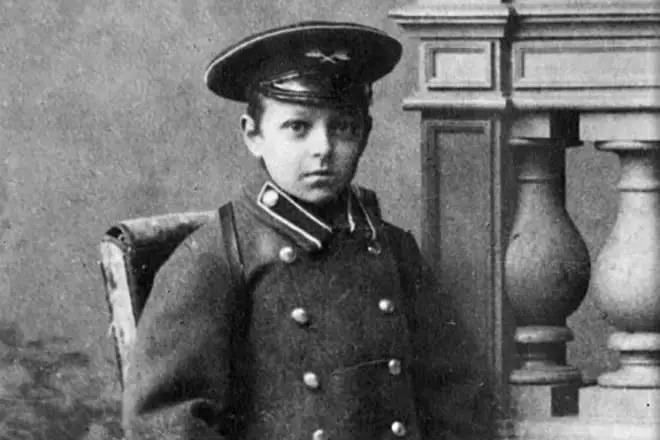
The future director was born on February 13, 1883. Childhood Evgenia Bagrationovich passed in Vladikavkaz, in the family of manufacturer. However, the boy did not attract financial affairs and commerce. Evgenia Vakhtangov's soul was drawn to creativity.
In 1903, the young man entered the Faculty of Natural Sciences of Moscow University. There Evgeny Vakhtangov studied only a year, and then transferred to the legal department of the same university. But the jurisprudence could not conquer the heart of Vakhtangov, and the young man soon found the opportunity to make a favorite thing.
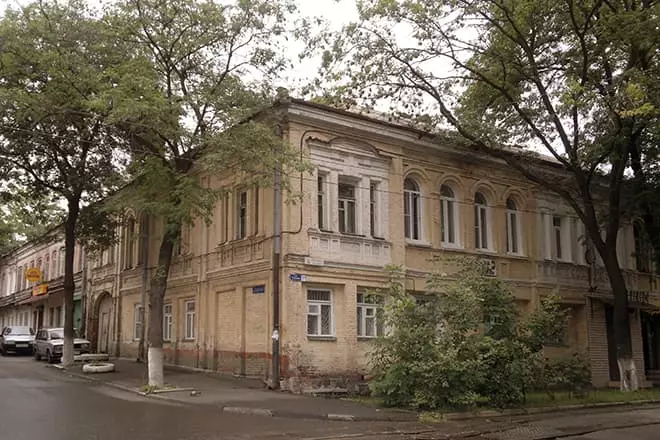
Already in 1905, Evgeny Vakhtangov independently set the first performance in the student theater. It was a play "Pedagogues" in the same name of the work of Otto Ernst. This setting was not free: students gathered funds to help people need. A year later, Evgeny Bagrationovich opened a student circle of dramatic art.
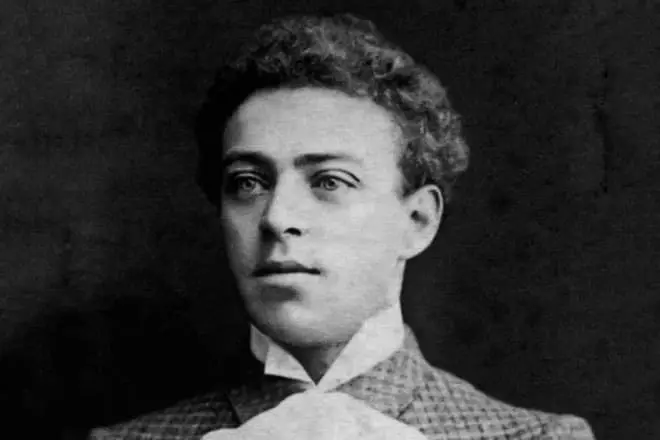
After graduating from the University, Evgeny Vakhtangov decided to continue the theater career and went to study in the famous School of Drama Alexander Adashev. Young talent was lucky again: Talented teachers of Vasily Luzhsky, Leopold Solerzhitsky and Vasily Kachalov were taught there. Later, Eugene Vakhtangov admits that Solerzhitsky himself had a serious impact on the formation of his talent.
Theater
Evgeny Vakhtangov's theatrical biography of Evgenia Vakhtangov began, perhaps from the Moscow Art Theater, where the young director put the first professional performances and was engaged in a group of students, applying the experimental model of Stanislavsky. In addition, Wahtangov adhered to Leopold Solerzhitsky's rules: morality, sincere game and preaching good, according to Evgenia Bagrationovich, make up the basis of acting skills.
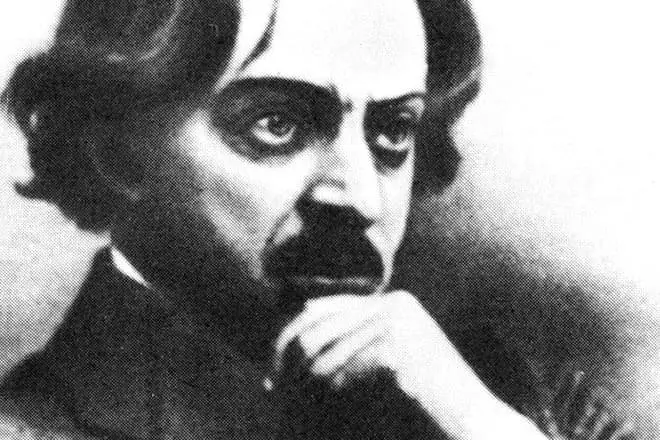
The directorial works of Evgenia Vakhtangov of that time was largely built on the opposition of good and evil. Such were, for example, the performances of "Flood" and "Holiday of the World". Also, actors and roles that carefully prescribed Wahtangs carried the contrast of the external asceticism and the wealth of the inner world (as, for example, in the play "Rosmersholm" on the work of Heinrich Ibsen).
Evgenia Vakhtangov's pedagogical efforts were not limited to the MHT studio. Evgeny Bagrationonian also gladly taught in Moscow theater schools and even amateur theaters, helping fans of performances to prepare interesting productions.
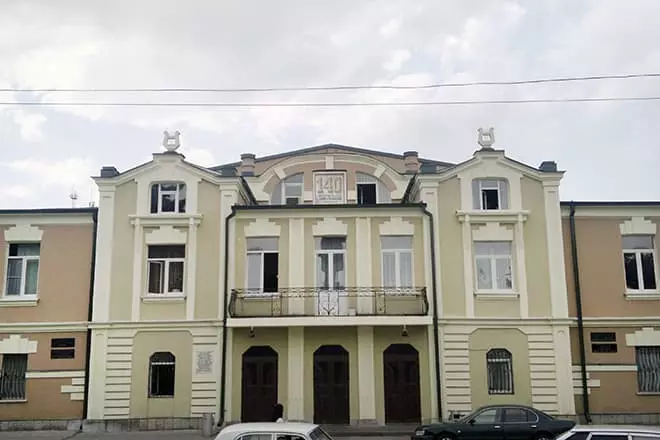
Evgeny Vakhtangov's special love used the so-called Mansurovskaya Studio, which was named the name of the alley in which the building was located. In 1920, the Studio will receive the name of the Moscow Dramatic Studio named after Vakhtangov, and in 1921 it will be proudly called the State Academic Theater named after Evgeny Vakhtangov.
The post-revolutionary productions of Yevgeny Bagrationovich were distinguished by special tragedy: the director tried to convey the image of the revolution and the experience of people who touched these historical events. Broken fate, social problems and tragedy of a separate person - this is what Vakhtangov was interested at that moment.
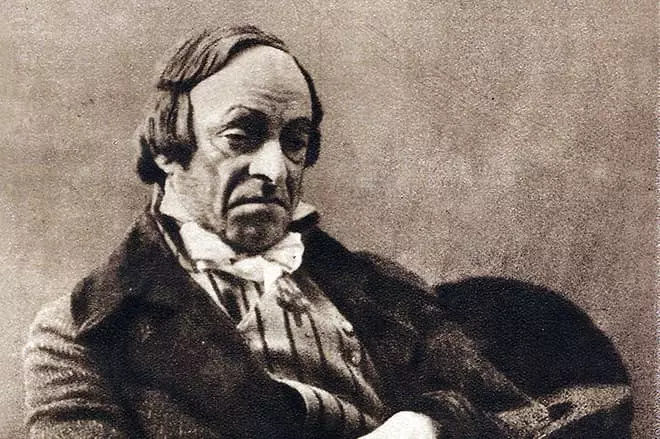
In 1920, the audience saw the wedding on the work of Anton Pavlovich Chekhov. Vakhtangov managed to transfer the tragedy of the stagnant meshness in his poor sense. This phenomenon of Evgeny Bagrationonovich called a beaker during the plague.
The opposition of power and the people received an embodiment in the production of "Eric XIV": in the performance reflects the contradictions in the intentions of the power of people and ordinary people, which invariably turns into the tragedy, even if the ruler, at a glance, seeks only honest and noble goals.
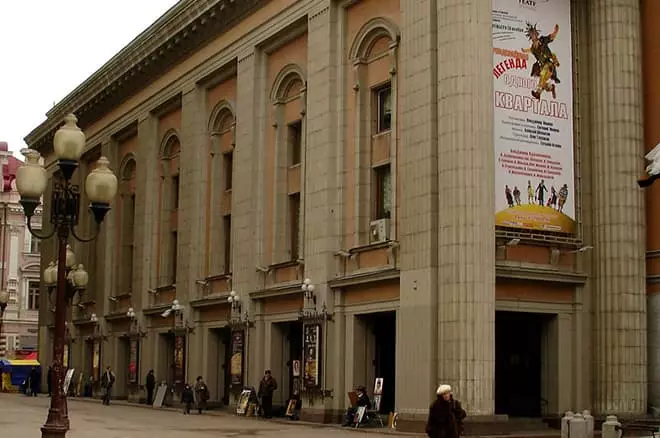
According to the evidence of theatrons and critics of the time, the largest development of the conflict of light and dark, evil and good, death and the reviving life has reached in the formulation called "Gadibuk" on the play by the seeds of the An-Skogo (such a pseudonym Slumome-Zanl Rappoport). This is a story created on the basis of the Head of the Head of Dibbuchi - demons in which the souls sold to the Devil are treated.
Another bright creative triumph of Evgeny Vakhtangov is the performance of Princess Turandot for the work of Karl Gotszi. The plot of fairy tales is traditional: the capricious Chinese princess named Turandot does not want to leave the father's house and marry. However, relatives insist on the marriage of beauties. Then the tricky girl puts the condition: only one who solves three riddles be worthying next to it. The snag is that these riddles are not so easy.
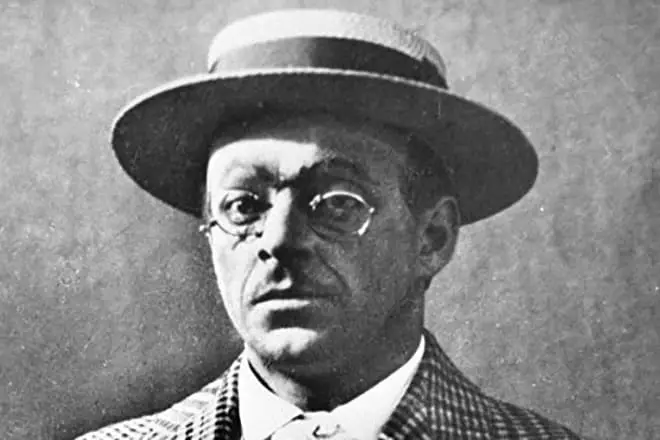
Dozens of brand, without coping with the task, lost their lives. However, Prince Calaf, in love with a trying beauty, managed to overcome obstacles and fall in love with Turandot. The setting was thought of as a bold experiment in terms of the game of actors: The hyserie depicted not only the characters of the play, but also themselves playing in the play.
In addition, many scenes of Vakhtangov gave to the deposit of improvisation, which made it possible to achieve an incredible effect. Unfortunately, the director never managed to see the premiere of this production: at that time Evgeny Bagrationovich had already solidiously, and the state of health did not allow a man to attend the performance.
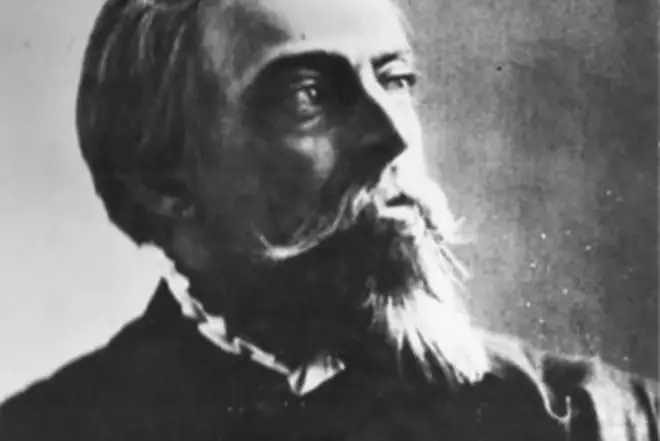
It is believed that the work of Evgenia Vakhtangov has formed a classic luggage of the Russian theater. Among the students of the Great Master - Actors Cecilia Mansurov, Ruben Simonov, Boris Schukin, Yuri Zavadsky and many other star names.
Evgeny Vakhtangov believed that the theater was not the prerogative of secured and educated people. Acting, according to Evgenia Bagrationovich, belongs to the people. The director adhered to the same principle in his own productions: what was happening on the stage was clear to everyone, and each viewer could find something close in the experiences of heroes.
Personal life
Evgenia Vakhtangov was lucky to meet a woman who became love of a lifetime.
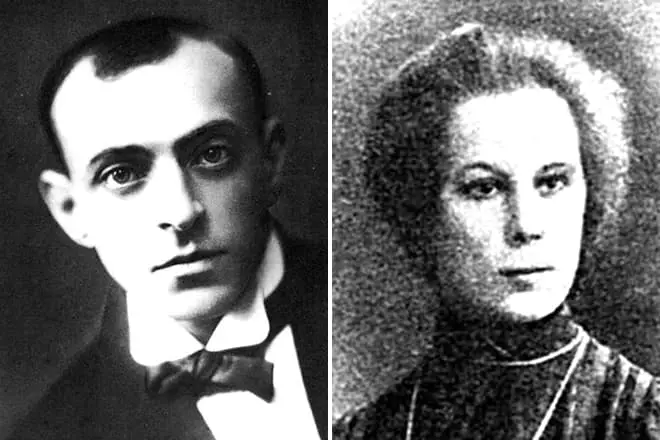
School girlfriend Nadezhda Baitsurova has become the elected director. In the family of Evgenia Bagrationovich and Hope Mikhailovna, Son Sergey.
Death
The last years of the director's life was overshadowed with a terrible disease: Evgenia Vakhtangov was diagnosed with stomach cancer. However, despite such a serious diagnosis, Evgeny Bagrationovich, until the latter continued to work, spending entire days in the walls of the native theater.
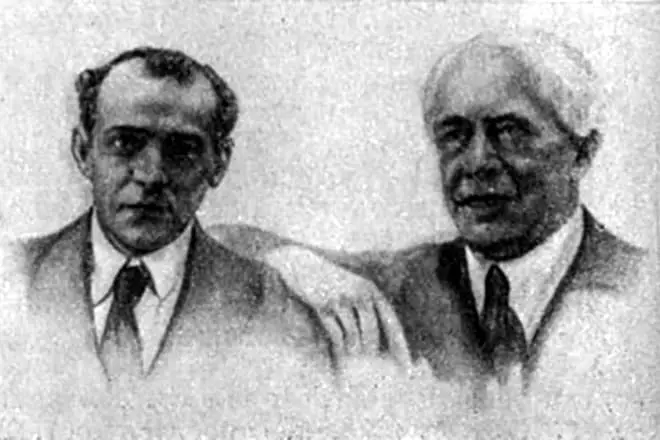
In 1922, for a while before the premiere of the play "Princess Turandot", the director felt worse. Evgeny Vakhtangov remained at home for several days, unable to go to rehearsals. On the day of the premiere, the director also did not find the strength to get off the bed, and Konstantin Stanislavsky visited Evgenia Bagrationovich intermission, which brought enthusiastic reviews about the production.
On May 29, 1922, Evgenia Vakhtangov did not. Two days later, the funeral of the Great Master took place. Evgenia Bagrationovich's grave is located on the Moscow Novodevichy Cemetery. The tombstone of the wizard, in addition to the traditional photo, decorates the obelisk in the form of a person in a raincoat.
Work in the theater
Actor
- 1913 - "Lanina Manor"
- 1913 - "World Holiday"
- 1914 - "Thought"
- 1914 - "Cricket on the furnace"
- 1915 - "Stone Guest"
- 1915 - "Flood" Berger "
Producer
- 1913 - "World Holiday"
- 1915 - "Flood"
- 1918 - Rosmersholm
- 1920 - "Wedding"
- 1921 - "Miracle of St. Anthony"
- 1921 - "Eric XIV"
- 1922 - "Princess Turandot"
